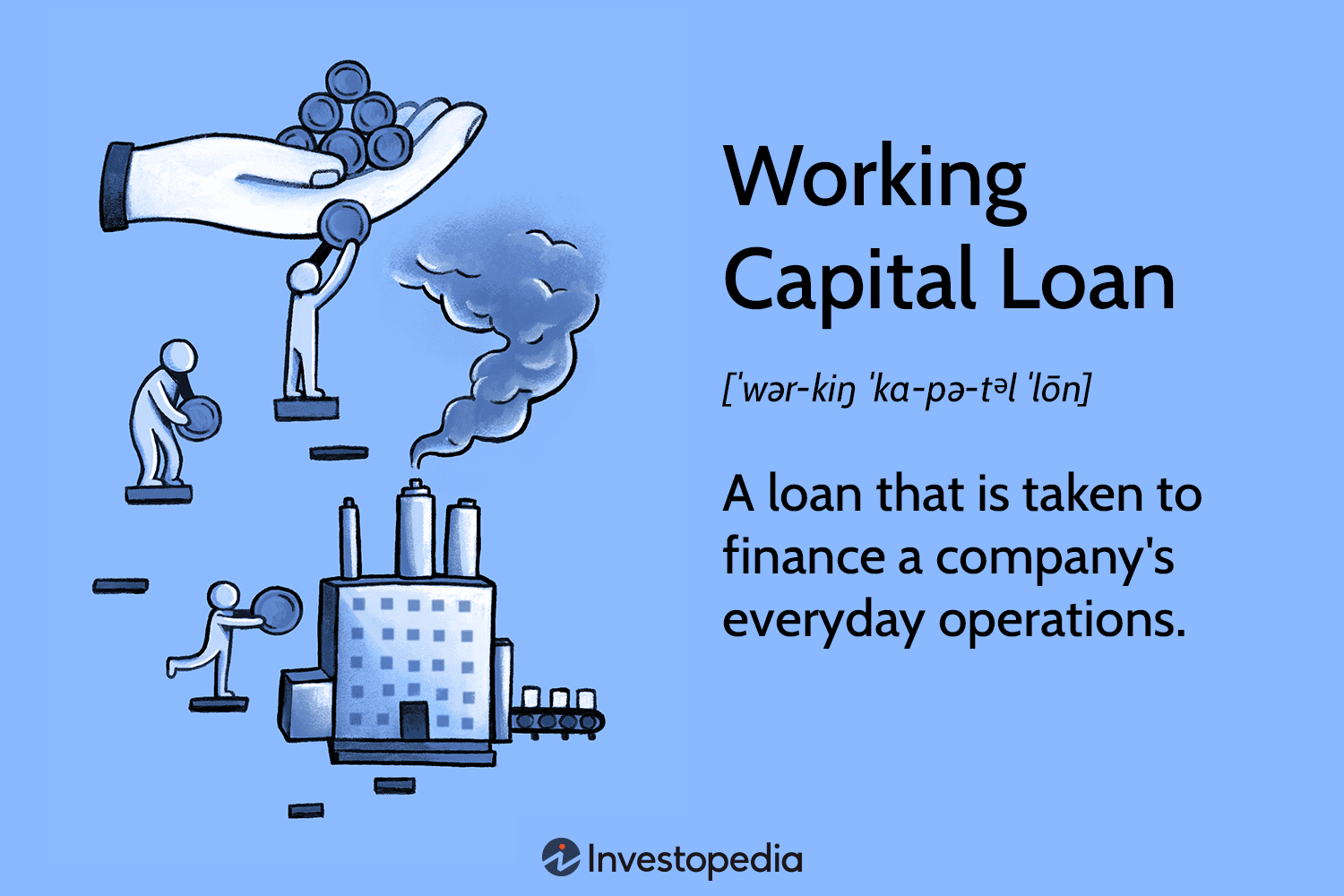Understanding Long Term Business Loans
Exploring the Benefits of Long-Term Business Loans
Welcome, fellow business owners! Are you looking to expand your business, invest in new equipment, or hire more employees? If so, long-term business loans may be the ideal solution for you. In this article, we will explore the benefits of long-term business loans and how they can help you achieve your long-term goals. Whether you are a small startup or an established company, long-term loans can provide the financial flexibility you need to grow and succeed.
Understanding Long Term Business Loans
Long term business loans are a type of financing that is designed to be repaid over an extended period of time, typically more than 5 years. These loans are often used by businesses to fund major investments, such as purchasing new equipment, expanding operations, or acquiring another business. They are a popular choice for businesses that need a significant amount of capital and want to spread out the repayment over a longer period of time.
When you take out a long term business loan, you will typically receive a lump sum of money upfront, which you will then repay, along with interest, in monthly installments over the term of the loan. The interest rates on long term business loans can vary depending on a variety of factors, such as the lender, the creditworthiness of the borrower, and the current economic environment. Generally, long term loans tend to have lower interest rates than short term loans, as the lender is taking on less risk by spreading out the repayment over a longer period of time.
One of the key advantages of long term business loans is that they provide businesses with a predictable repayment schedule. By spreading out the repayment over several years, businesses can better manage their cash flow and budgeting. This can be particularly important for businesses that are investing in long-term projects that may not generate immediate returns. Additionally, long term loans can also provide businesses with the flexibility to make larger investments without having to put up collateral or dilute ownership through equity financing.
However, it’s important to note that long term business loans also come with some drawbacks. Because the repayment period is longer, businesses will end up paying more in total interest over the life of the loan compared to a short term loan. Additionally, businesses may face challenges in qualifying for a long term loan, as lenders will typically require a strong credit history, a solid business plan, and evidence of the ability to repay the loan. Finally, businesses may also face restrictions on how they can use the loan proceeds, as lenders may require the funds to be used for specific purposes, such as purchasing equipment or expanding operations.
Overall, long term business loans can be a valuable tool for businesses that need a significant amount of capital and want to spread out the repayment over a longer period of time. By understanding the advantages and disadvantages of long term loans, businesses can make informed decisions about whether this type of financing is the right choice for their needs.
Advantages of Long Term Business Loans
Long term business loans offer several advantages for businesses looking to secure funding for their operations or growth. Here are some of the key benefits of opting for a long term loan:
1. Lower Monthly Payments: One of the main advantages of long term business loans is that they typically come with lower monthly payments compared to short term loans. This can make it easier for businesses to manage their finances and cash flow, as they have a longer period of time to repay the loan amount.
2. Flexibility in Repayment: Long term business loans often offer more flexibility in repayment options compared to short term loans. Businesses can choose a repayment schedule that works best for their cash flow, whether it’s monthly, quarterly, or annually. This flexibility can help businesses plan their finances more effectively and avoid any cash flow issues that could arise from rigid repayment schedules.
3. Longer Loan Terms: As the name suggests, long term business loans come with longer loan terms, typically ranging from five to 25 years. This longer repayment period gives businesses more time to repay the loan amount, making it less restrictive on their cash flow. It also allows businesses to invest in long-term projects or assets that may take time to generate returns.
4. Lower Interest Rates: Long term business loans often come with lower interest rates compared to short term loans. The extended repayment period gives lenders more confidence in the borrower’s ability to repay the loan, leading to lower interest rates. This can result in significant savings for businesses over the life of the loan.
5. Access to Higher Loan Amounts: Long term business loans typically offer higher loan amounts compared to short term loans. This can be beneficial for businesses that require a significant amount of funding for large projects or expansions. The higher loan amounts can help businesses achieve their growth objectives without the need for multiple smaller loans.
6. Build Credit History: Taking out a long term business loan and consistently making on-time payments can help businesses build a positive credit history. A strong credit history can make it easier for businesses to secure funding in the future at better terms and rates. It can also improve the business’s overall financial health and credibility with lenders.
Overall, long term business loans offer several advantages that can benefit businesses in the long run. From lower monthly payments and flexibility in repayment to access to higher loan amounts and building credit history, these loans can help businesses achieve their financial goals and grow sustainably.
Considerations Before Applying for Long Term Business Loans
When considering applying for a long term business loan, there are several important factors to keep in mind to ensure that it is the right decision for your business. These considerations can help you determine whether a long term loan is the best option for your specific circumstances:
1. Business Needs: Before applying for a long term loan, it is crucial to carefully assess your business needs and determine how much funding you require. Consider factors such as the purpose of the loan, the amount of capital needed, and the timeline for repayment. It is important to have a clear understanding of why you need the loan and how it will benefit your business in the long run.
2. Financial Stability: Lenders will evaluate your business’s financial history and current financial health when reviewing your loan application. It is essential to have a strong financial track record, including stable revenue and cash flow, to demonstrate your ability to repay the loan. Lenders may also require collateral to secure the loan, so it is important to have assets or business equipment that can be used as security.
3. Repayment Terms: It is crucial to carefully review and understand the repayment terms of a long term business loan before applying. Consider factors such as the interest rate, monthly payments, and the total cost of the loan over its term. Make sure you can afford the monthly payments and that the loan term aligns with your business’s financial projections and cash flow. If possible, choose a loan with flexible repayment options that can accommodate your business’s needs.
4. Creditworthiness: Your personal and business credit history will play a significant role in determining whether you qualify for a long term business loan and the interest rate you are offered. Before applying for a loan, review your credit reports and credit scores to identify any issues that may impact your eligibility. If your credit history is less than stellar, consider taking steps to improve your creditworthiness, such as paying off outstanding debts and timely payments on existing credit accounts.
5. Alternative Financing Options: In addition to traditional long term business loans, there are a variety of alternative financing options available to small businesses, including lines of credit, equipment financing, and invoice factoring. Explore these alternatives to determine whether they may be a better fit for your business’s financial needs and goals. Each financing option has its own benefits and drawbacks, so it is important to compare them carefully before making a decision.
By considering these factors before applying for a long term business loan, you can make an informed decision that aligns with your business’s financial goals and needs. This careful planning can help you secure the funding you need to grow and expand your business while minimizing financial risks and challenges.
Types of Long Term Business Loans Available
When it comes to long term business loans, there are several options available for entrepreneurs looking to secure financing for their ventures. Here are some of the most common types of long term business loans:
1. Traditional Term Loans: Traditional term loans are one of the most popular options for long term business financing. These loans are typically offered by banks and traditional lenders, and they come with fixed interest rates and repayment terms. Borrowers can use traditional term loans to fund a variety of business expenses, from buying equipment to expanding their operations.
2. SBA Loans: Small Business Administration (SBA) loans are another option for entrepreneurs in need of long term financing. These loans are partially guaranteed by the SBA, which makes them less risky for lenders and allows borrowers to access lower interest rates and longer repayment terms. SBA loans can be used for a wide range of purposes, including purchasing real estate, acquiring another business, or refinancing existing debt.
3. Equipment Financing: If your business needs to purchase new equipment, you may be able to secure financing through an equipment loan. These loans are specifically designed to help businesses acquire the equipment they need to operate, and the equipment itself typically serves as collateral for the loan. This can make equipment financing a good option for businesses that may not qualify for traditional term loans.
4. Commercial Real Estate Loans: For entrepreneurs looking to invest in commercial real estate, a commercial real estate loan can provide the long term financing they need. These loans are specifically designed for purchasing, refinancing, or renovating commercial properties, such as office buildings, warehouses, or retail spaces. Commercial real estate loans typically come with longer repayment terms and lower interest rates than other types of loans, making them an attractive option for entrepreneurs looking to expand their real estate holdings.
5. Business Line of Credit: While technically not a long term loan, a business line of credit can still provide flexible financing for businesses in need of ongoing capital. With a business line of credit, borrowers can access funds up to a certain credit limit, repay what they borrow, and then borrow again as needed. This can be a useful tool for managing cash flow fluctuations or taking advantage of unexpected opportunities.
Overall, there are several types of long term business loans available to entrepreneurs looking to finance their ventures. By understanding the options and choosing the right loan for their needs, businesses can secure the financing they need to grow and succeed.
How to Qualify for Long Term Business Loans
Long term business loans are a great option for businesses looking to finance big projects, expand their operations, or invest in new equipment. Qualifying for a long term business loan can be a more involved process compared to short term loans, but the benefits can be worth it in the long run. Here are some key ways to improve your chances of qualifying for a long term business loan:
1. Strong Credit Score: One of the most important factors that lenders consider when evaluating a business loan application is the credit score of the business owner. A high credit score indicates that you are a responsible borrower and are more likely to repay the loan on time. Make sure to maintain a good personal and business credit score before applying for a long term loan.
2. Business Plan: Lenders want to see a detailed business plan that outlines your company’s revenue streams, expenses, and future growth projections. Your business plan should demonstrate how you plan to use the loan proceeds to grow your business and generate more revenue. A well-thought-out business plan not only shows lenders that you are serious about your business, but also helps you stay on track with your goals.
3. Strong Financials: In addition to a solid credit score and business plan, lenders will also look at your company’s financial statements, such as profit and loss statements, balance sheets, and cash flow projections. These documents provide a snapshot of your company’s financial health and its ability to repay the loan. Make sure your financial statements are up-to-date and accurately reflect your business’s financial position.
4. Collateral: To secure a long term business loan, you may be required to provide collateral, such as real estate, equipment, or inventory. Collateral helps mitigate the lender’s risk by providing an asset that can be liquidated in case you default on the loan. Be prepared to offer collateral that is equal to or greater than the loan amount to increase your chances of approval.
5. Stable Business History: Lenders prefer to work with established businesses that have a proven track record of success. A stable business history demonstrates to lenders that your company has the experience and management expertise to handle the responsibilities of a long term loan. If your business is relatively new, consider building a strong credit history and generating consistent revenue before applying for a long term loan.
By focusing on these key factors, you can improve your chances of qualifying for a long term business loan and accessing the funds you need to grow your business. Remember to shop around and compare loan offers from different lenders to find the best terms and rates that suit your business’s needs.







